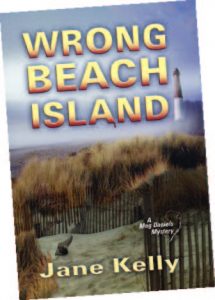When Jane Kelly is angry with people, she kills them.
That is just one of the many perks of being a mystery writer. “There was a person in my life who I disliked very much,” Jane Kelly says of her first book, authored in the mid-1990s. “So I killed him in a story. I found it to be a much safer, more legal way to vent my frustrations, and most importantly, I discovered that I really enjoyed writing.”
The author of the popular New Jersey Shore-based fiction series featuring sleuth and heroine Meg Daniels, Kelly will release the fourth installment of a series that includes Killing Time in Ocean City, Cape Mayhem, and Wrong Beach Island later this fall. That first book, for the record, never found a publisher. Nevertheless, Kelly (then in her 40s) didn’t give up. After a conversation with Tom Hogan, Sr., president of Medford-based Plexus Publishing, she was encouraged to try writing about something she knew a lot about. That’s when the focus of her next mystery became the Jersey Shore; Kelly had been vacationing at the beach from the age of five months, and has returned every year since.
“I was most familiar with Ocean City, so that’s where I started…and Killing Time in Ocean City was actually published,” she recalls. “But since bodies don’t wash up at the Jersey Shore every day, I thought it would be best to come up with mysteries for Meg to solve in other towns I knew and loved, like Cape May and Long Beach Island…and now Atlantic City.”
Kelly’s most recent novel isn’t entirely focused on casinos or gambling. She’s more inclined to sink $20 in video poker and go home than she is to drop hundreds of dollars at the tables. Instead, she infuses her work with other sources of personal inspiration. “I’m not a big gambler, but there is a part of me that always wanted to be a singer—even though I have no talent whatsoever,” she smiles. “So that’s why I made one of the main characters a frustrated lounge singer.”
In Missing You in Atlantic City, Meg is vacationing in Atlantic City while her boyfriend (recurring character Andy Beck) is busy working at his job in hotel casino security. She finds herself spending a lot less time with her toes in the sand than she had hoped when she decides to dig into a disappearance that occurred in the 1960s. The 50-year-old mystery revolves around a chance encounter with Johnny Boyle, a lounge singer and Frank Sinatra impersonator known as Johnny Angelini, and his long-lost mother, Betty Boyle, who went missing when he was an infant.
Like Kelly, Meg has always written from the perspective of a tourist at the Jersey Shore. As she listens to Johnny’s tragic tale, she vows to help him find out what happened to his mother once and for all. “My first thought was that, as someone who comes to visit the beach, you never expect anything bad to happen.” Kelly says. “Yet, somehow, Meg always knows how to find trouble. After three books, you’d think she would have figured that out by now.”
As Meg attempts to interview a tangled web of surviving witnesses in the mysterious disappearance of Betty Boyle—and ultimately reveals a twisted cover-up in the process—the story delves into the sordid world of politics in 1964, when the Democratic National Convention rolled into town and was held at Boardwalk Hall. “The reason Meg is so successful at what she does,” says Kelly, “ is that she really cares. She genuinely wants to help people, and she finds herself completely caught up in this story of the son who was left behind. My books are supposed to be light, fun beach reads. But they also have that additional emotion and depth regarding the crime itself.”
Prior to becoming an author, Kelly’s life didn’t have quite as much drama as her heroine’s. She graduated from Chestnut Hill College in Philadelphia, earned a Master’s of Science degree in information studies from Drexel University, and added a Master’s of Philosophy in Popular Literature from Trinity College at the University of Dublin. She went on to work in online information (“Before people even knew what the Internet was,” she says), consulting, and facilities management—in which she still has a day job, traveling to New York, Washington, DC, Chicago, Boston and other cities as part of her work.
Actually, it was when writing her graduate thesis on political fiction when Kelly first began researching the historical events that ultimately would set the stage for the plot of Missing You in Atlantic City. “I became completely fascinated with history, and started reading exclusively non-fiction about the early Cold War period,” she recalls. “That’s when I had the idea of having a crime that was committed in the past, and combining it with my memories of all my visits to Atlantic City growing up.”
Kelly did some sleuthing herself. Not only did she spend time wandering the boardwalk and casinos of Atlantic City, she took her research a step further and tracked down an assortment of people who had lived during that time. “I had a friend who actually went to hear Bobby Kennedy speak at the convention. Times were different back then, and I know Betty Boyle would have been able to do the same thing.”
Looking ahead, Kelly hopes to continue to be able to explore the past when it comes time to dream up her next mystery. “I like to learn about the history of the years that I’ve been alive,” she says. “You don’t have to live in Atlantic City or have grown up in the 1960s to know what was going on back then, and I think people will enjoy reading about something that was so important to our history and that happened right here in our backyard.”
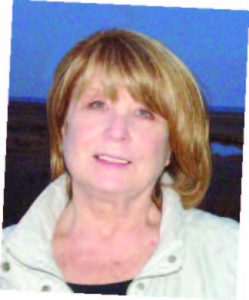 Meg Daniels will continue solving crimes, Kelly expects. However, there are plans in the works for new characters. Devising the complex plots in her novels almost comes naturally to Kelly now, but it’s her characters that make each book special. “If I were only concerned with plot, I’d be publishing books a lot more quickly,” she says. “The characters always end up taking on a life of their own…and if I can’t ‘hear’ them in m
Meg Daniels will continue solving crimes, Kelly expects. However, there are plans in the works for new characters. Devising the complex plots in her novels almost comes naturally to Kelly now, but it’s her characters that make each book special. “If I were only concerned with plot, I’d be publishing books a lot more quickly,” she says. “The characters always end up taking on a life of their own…and if I can’t ‘hear’ them in m
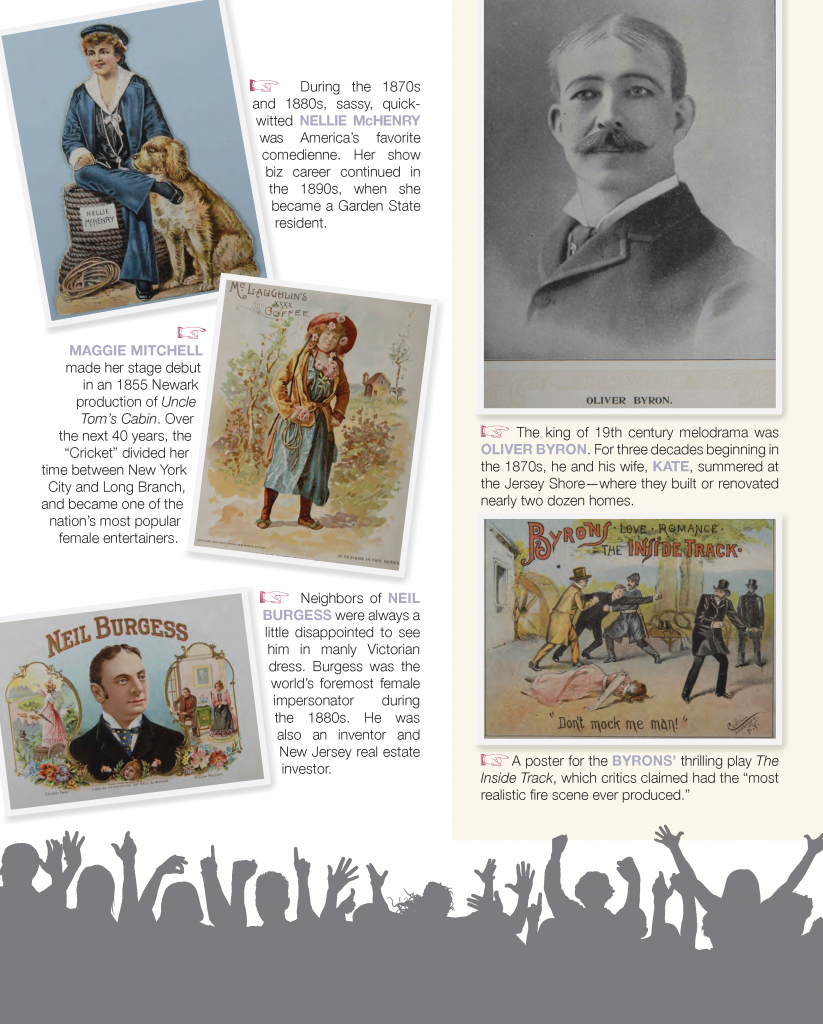
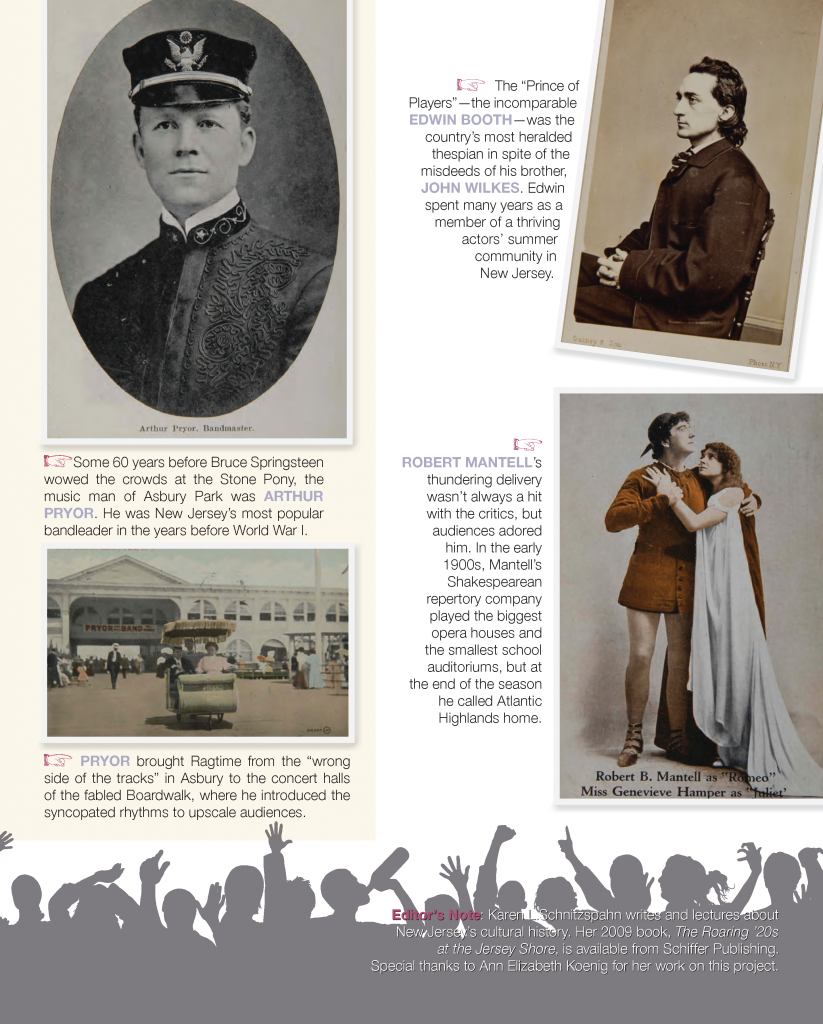

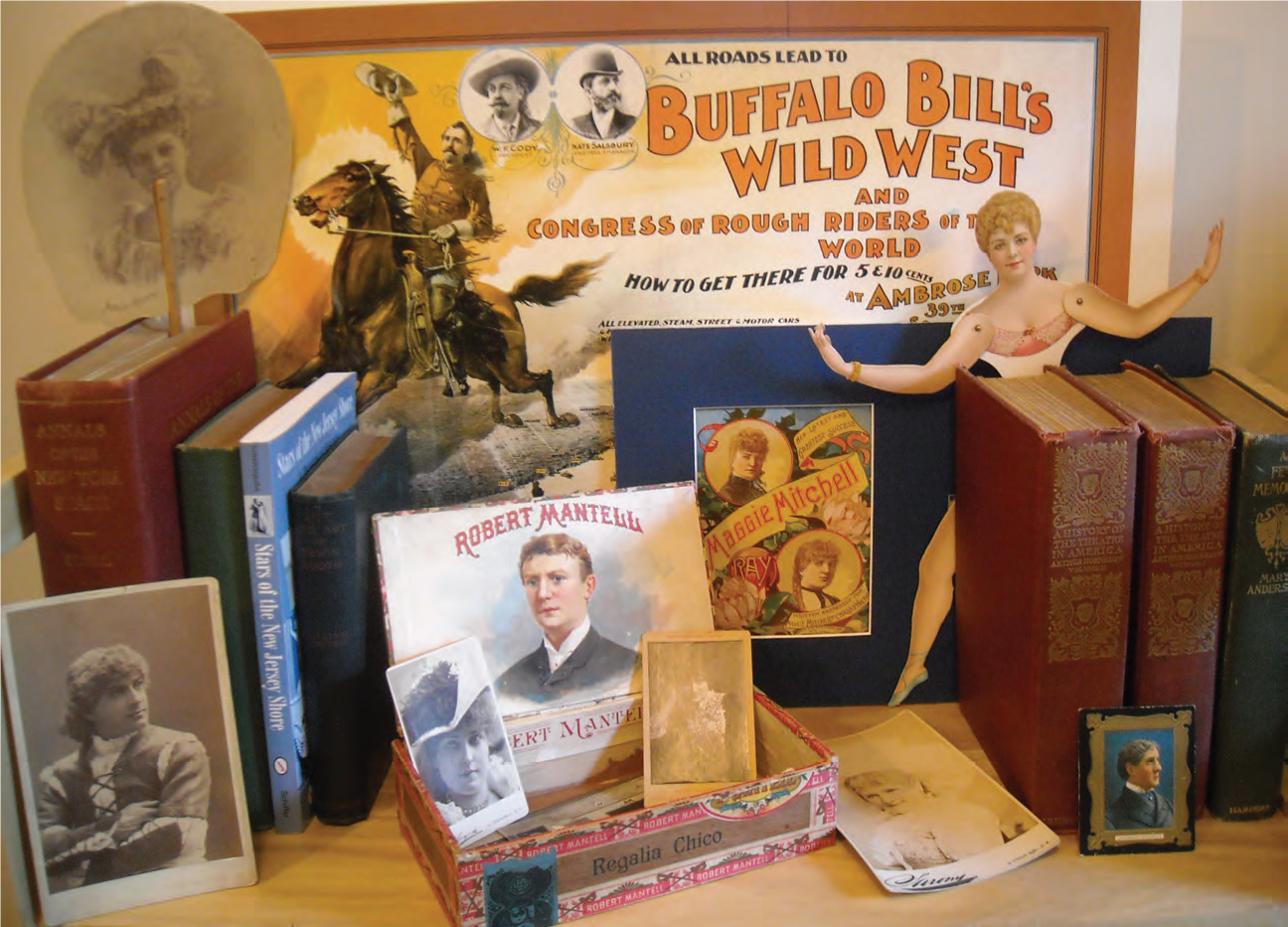
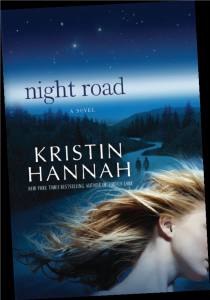 dynamic created when a family with high school- aged twins opens its home to a disadvantaged teenager. Night Road unfolds during a time in the twins’ lives that challenges even the most steadfast parent: senior year. This is the story of the Farradays—mother Jude, father Miles and teens Zach and Mia—and Lexi Ball, a former foster child. When Lexi moves into the Farradays’ small, close-knit community, she quickly becomes Mia’s best friend—and, eventually, the object of Zach’s affections. But the inseparable trio’s world is shattered when a reckless decision tears the Farraday family apart, changes the entire course of Lexi’s life, and grief forever transforms Jude’s ability to be a mother. The book raises profound questions about the resilience of the human heart and the courage it takes to forgive through the haunting story of a family shattered by tragedy, and their struggle to put the pieces back together. Hannah didn’t have to look far for the inspiration she needed to infuse her book with the emotional turmoil parents experience when teenagers first begin vying for independence. She was inspired to write Night Road after experiencing the ups and downs of her own son’s senior year. “We’ve always had a really close relationship, and he’s a really good kid, but we suddenly found ourselves battling constantly about the decisions he was making and the dangers waiting out there in the world for him,” she says. “I didn’t realize until quite some time later that I didn’t sleep much that year…and I started writing Night Road when I could look back and reflect upon that stressful time in the life of any family.” Night Road’s powerful maternal force, Jude, in many ways epitomizes the term “helicopter parent” for the micromanaging role she plays in her twins’ lives. Hannah says her most recent book is much like the 2008 novel Firefly Lane (which explores the friendship between two women as they pursue the often opposing goals of fame and family) in that the story was largely drawn from her own personal experiences. “The challenges, the choices, and the questions that arose during my son’s senior year of high school really informed the writing of Night Road,” she explains. “There’s a lot of myself in the character of Jude—but then there’s a little bit of me in all of my characters. What writers bring
dynamic created when a family with high school- aged twins opens its home to a disadvantaged teenager. Night Road unfolds during a time in the twins’ lives that challenges even the most steadfast parent: senior year. This is the story of the Farradays—mother Jude, father Miles and teens Zach and Mia—and Lexi Ball, a former foster child. When Lexi moves into the Farradays’ small, close-knit community, she quickly becomes Mia’s best friend—and, eventually, the object of Zach’s affections. But the inseparable trio’s world is shattered when a reckless decision tears the Farraday family apart, changes the entire course of Lexi’s life, and grief forever transforms Jude’s ability to be a mother. The book raises profound questions about the resilience of the human heart and the courage it takes to forgive through the haunting story of a family shattered by tragedy, and their struggle to put the pieces back together. Hannah didn’t have to look far for the inspiration she needed to infuse her book with the emotional turmoil parents experience when teenagers first begin vying for independence. She was inspired to write Night Road after experiencing the ups and downs of her own son’s senior year. “We’ve always had a really close relationship, and he’s a really good kid, but we suddenly found ourselves battling constantly about the decisions he was making and the dangers waiting out there in the world for him,” she says. “I didn’t realize until quite some time later that I didn’t sleep much that year…and I started writing Night Road when I could look back and reflect upon that stressful time in the life of any family.” Night Road’s powerful maternal force, Jude, in many ways epitomizes the term “helicopter parent” for the micromanaging role she plays in her twins’ lives. Hannah says her most recent book is much like the 2008 novel Firefly Lane (which explores the friendship between two women as they pursue the often opposing goals of fame and family) in that the story was largely drawn from her own personal experiences. “The challenges, the choices, and the questions that arose during my son’s senior year of high school really informed the writing of Night Road,” she explains. “There’s a lot of myself in the character of Jude—but then there’s a little bit of me in all of my characters. What writers bring
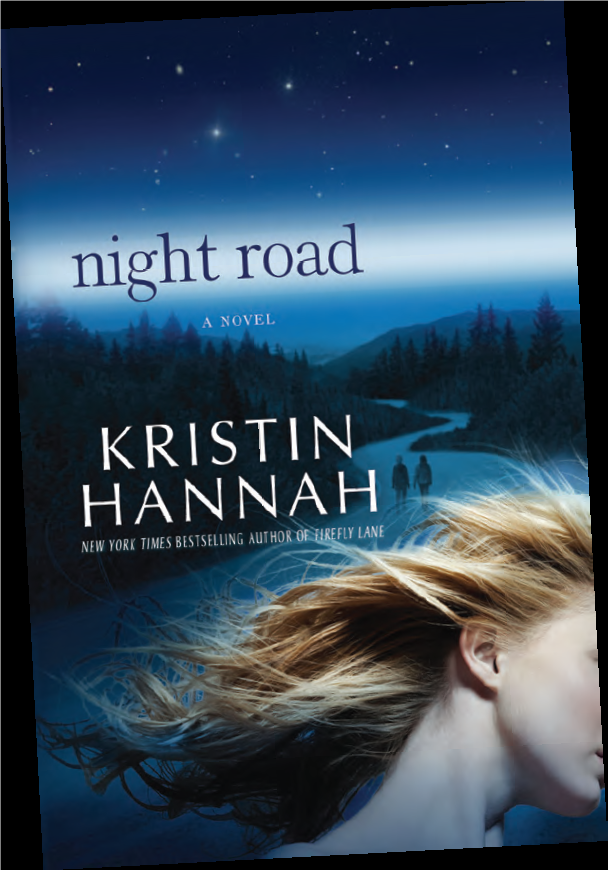
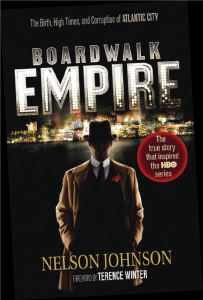 checking. Boardwalk Empire chronicles the highlights and lowlights of the corrupt politicians who came to rule Atlantic City when the town’s sole purpose was providing a good time to its visitors (legally or not). Nucky Thompson, played by Steve Buscemi, is based on Nucky Johnson, the second of three bosses to lead the political machine that dominated city politics, funded by payoffs from bars, brothels, and bootlegging. The real-life Nucky ruled the town for three decades starting in the years prior to World War I. When the author’s manuscript (originally dubbed “Nucky’s Town”) found its way into the hands of John Bryans at Plexus nearly a decade ago, the publisher knew it would sell based on the company’s success with similar regional projects. Johnson always believed it could be more, despite fruitless trips to Hollywood to pitch the story as a feature film or documentary. Fortunately, Johnson did catch the attention of an agent, and in 2006 Bryans received an e-mail from an HBO television executive who was salivating for the rights to a book revolving around shocking backdoor politics, explosive violence, and fatal power struggles. The HBO series debuted on September 19th, 2010, starring Buscemi, Michael Pitt and Kelly Macdonald. The show features the creative talents of Terence Winter, writer on The Sopranos, and Mark Wahlberg as producer; Martin Scorsese directed the first episode. Winter also penned the foreword for the new edition of the book. As a sitting judge, the author has backed away from interviews publicizing the book or the HBO series. However, according to Bryans, upon initial publication, Boardwalk Empire sold roughly 10,000 copies. Thanks to the buzz created by HBO, another 10,000 flew off the shelves. An order for another 85,000 copies, updated to be a tie-in edition, followed. The book concerns itself with a much broader sweep of material than the more narrowly focused series, which, as Bryans points out, focuses on “sex, violence, and swearing.” That being said, the seedy underbelly of Atlantic City is fully exposed in Johnson’s book—often with the aid of stunningly blunt first-person accounts. As one mob connected interview subject observed, “If the people who came to town had wanted Bible readings, we’d have given ’em that…they wanted booze, broads and gambling, so that’s what we gave ’em.” Regarding the HBO series, Bryans has liked what he sees on the small screen. “The show helps you realize that Nucky is a complex, fascinating character, and one you love to hate,” he says. “It’s nice to see that people are open to shades of gray.” “If you delve into the history of any major city in New Jersey,” Bryans maintains, “you’ll probably find the basis for a book. I think Boardwalk Empire makes everyone start thinking about the birth of their own hometown.” EDGE
checking. Boardwalk Empire chronicles the highlights and lowlights of the corrupt politicians who came to rule Atlantic City when the town’s sole purpose was providing a good time to its visitors (legally or not). Nucky Thompson, played by Steve Buscemi, is based on Nucky Johnson, the second of three bosses to lead the political machine that dominated city politics, funded by payoffs from bars, brothels, and bootlegging. The real-life Nucky ruled the town for three decades starting in the years prior to World War I. When the author’s manuscript (originally dubbed “Nucky’s Town”) found its way into the hands of John Bryans at Plexus nearly a decade ago, the publisher knew it would sell based on the company’s success with similar regional projects. Johnson always believed it could be more, despite fruitless trips to Hollywood to pitch the story as a feature film or documentary. Fortunately, Johnson did catch the attention of an agent, and in 2006 Bryans received an e-mail from an HBO television executive who was salivating for the rights to a book revolving around shocking backdoor politics, explosive violence, and fatal power struggles. The HBO series debuted on September 19th, 2010, starring Buscemi, Michael Pitt and Kelly Macdonald. The show features the creative talents of Terence Winter, writer on The Sopranos, and Mark Wahlberg as producer; Martin Scorsese directed the first episode. Winter also penned the foreword for the new edition of the book. As a sitting judge, the author has backed away from interviews publicizing the book or the HBO series. However, according to Bryans, upon initial publication, Boardwalk Empire sold roughly 10,000 copies. Thanks to the buzz created by HBO, another 10,000 flew off the shelves. An order for another 85,000 copies, updated to be a tie-in edition, followed. The book concerns itself with a much broader sweep of material than the more narrowly focused series, which, as Bryans points out, focuses on “sex, violence, and swearing.” That being said, the seedy underbelly of Atlantic City is fully exposed in Johnson’s book—often with the aid of stunningly blunt first-person accounts. As one mob connected interview subject observed, “If the people who came to town had wanted Bible readings, we’d have given ’em that…they wanted booze, broads and gambling, so that’s what we gave ’em.” Regarding the HBO series, Bryans has liked what he sees on the small screen. “The show helps you realize that Nucky is a complex, fascinating character, and one you love to hate,” he says. “It’s nice to see that people are open to shades of gray.” “If you delve into the history of any major city in New Jersey,” Bryans maintains, “you’ll probably find the basis for a book. I think Boardwalk Empire makes everyone start thinking about the birth of their own hometown.” EDGE 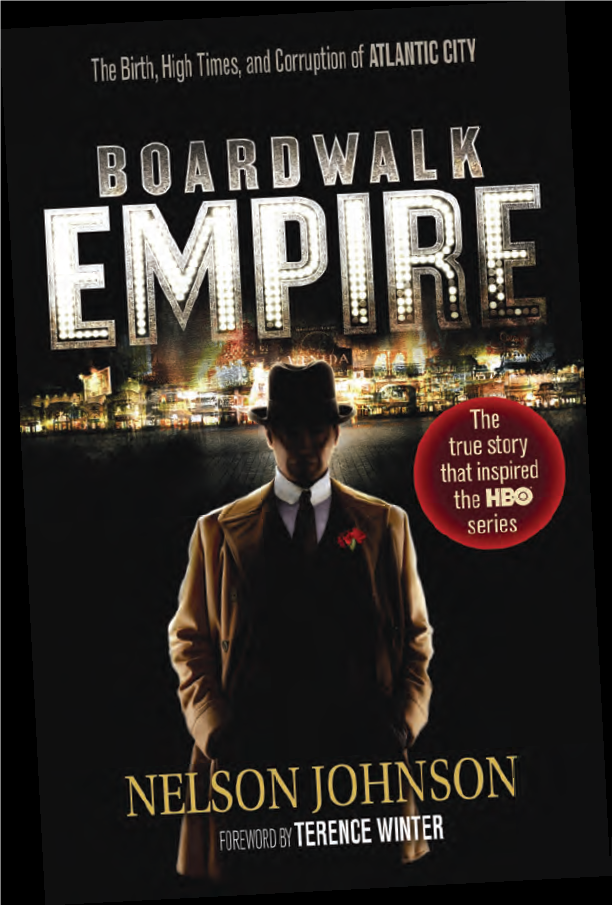
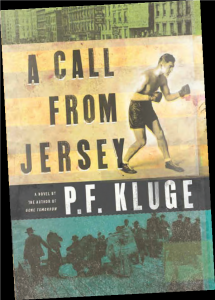 the very nature of estrangement and reconciliation. The Union County hamlet of Berkeley Heights serves as the epicenter for much of A Call from Jersey. Kluge is an unapologetic Jersey Boy with an intimate understanding of the suburban landscape. The story, much of it set in the 1980s, stretches across generations and cultures—and occasionally through the Holland Tunnel—to connect a father and son so preoccupied with how their lives have turned out that they can barely manage an adult conversation when they’re together. Gentle ironies define this relationship. Hans, a seventy-something German- American, is feeling lost in America. His son, George, is a travel writer capable of describing the exotic and mundane with equal aplomb, yet can’t quite put his finger on exactly where, or even what, “home” is. Kluge, it’s worth noting, is the man who supplied the literary inspiration for a pair of iconic films, Dog Day Afternoon and Eddie and the Cruisers. The former, about a Brooklyn bank robbery gone agonizingly awry, starred Al Pacino, fresh off Serpico and his two Godfather triumphs. The latter, about a fictional 1960s Jersey rock band, probably qualifies as a cult classic; certainly that’s true here in the Garden State. From a storytelling standpoint, the most appealing aspect of Eddie—the book and the film—is how effortlessly the narrative moves between past and present. Kluge utilizes time-shifting to great effect again in A Call from Jersey, transporting readers back to the 1930s in order to cobble together a kind of baseline for his characters. There we meet a young Hans, fresh off the boat from Germany, determined to shed his “greenhorn” label and start an American family. As the gap narrows between Hans and George, both timewise and relationship-wise, the author fills in the pertinent details to set up the surprise finish. The most distinctive aspect of A Call from Jersey is how comfortable Kluge is in his two different skins. The book is narrated in the first person, but alternates between Hans and George. The pressure of getting it right for two characters, says Kluge, is outweighed by the advantages of writing in multiple voices. “When you are writing, you are faced with that choice between first and third person,” he explains. “The first person is attractive to young writers because you can put a lot of yourself into the persona of the narrator. That’s fine, except there are certain places you can’t go. You can’t ‘play the field’—you’re a little bit stuck with that one person. The third person offers a larger palette, but you are at a distance from the characters.” “I like the idea of alternating first person narrators, though it’s not without problems. The voices have to be persuasive and can’t be too much alike. That challenged me, but I like it when it works. It combines the advantages of first and third person.” As Kluge’s two main characters stumble toward a long-neglected father-son reunion, they also pursue reunions of their own. George, feeling lost in his late 30s, is staring down the barrel of his 20th with that familiar mix of expectation and anxiety. Kluge, it is worth noting, is headed toward his 50th reunion this fall. In his case, it’s a not-insignificant trip from Gambier, Ohio, where he is Writer in Residence at Kenyon College. “The reason I faithfully attend my high school reunions is to see how lives are turning out,” he explains. “It’s what writers do. At a certain point, elements of competition, appearance and accomplishment dominate reunions. But over time it mellows out. You just want to stare at people and remember and connect. Reunions are about wanting to belong to that same bunch you had in the beginning. Or what’s left of it.”
the very nature of estrangement and reconciliation. The Union County hamlet of Berkeley Heights serves as the epicenter for much of A Call from Jersey. Kluge is an unapologetic Jersey Boy with an intimate understanding of the suburban landscape. The story, much of it set in the 1980s, stretches across generations and cultures—and occasionally through the Holland Tunnel—to connect a father and son so preoccupied with how their lives have turned out that they can barely manage an adult conversation when they’re together. Gentle ironies define this relationship. Hans, a seventy-something German- American, is feeling lost in America. His son, George, is a travel writer capable of describing the exotic and mundane with equal aplomb, yet can’t quite put his finger on exactly where, or even what, “home” is. Kluge, it’s worth noting, is the man who supplied the literary inspiration for a pair of iconic films, Dog Day Afternoon and Eddie and the Cruisers. The former, about a Brooklyn bank robbery gone agonizingly awry, starred Al Pacino, fresh off Serpico and his two Godfather triumphs. The latter, about a fictional 1960s Jersey rock band, probably qualifies as a cult classic; certainly that’s true here in the Garden State. From a storytelling standpoint, the most appealing aspect of Eddie—the book and the film—is how effortlessly the narrative moves between past and present. Kluge utilizes time-shifting to great effect again in A Call from Jersey, transporting readers back to the 1930s in order to cobble together a kind of baseline for his characters. There we meet a young Hans, fresh off the boat from Germany, determined to shed his “greenhorn” label and start an American family. As the gap narrows between Hans and George, both timewise and relationship-wise, the author fills in the pertinent details to set up the surprise finish. The most distinctive aspect of A Call from Jersey is how comfortable Kluge is in his two different skins. The book is narrated in the first person, but alternates between Hans and George. The pressure of getting it right for two characters, says Kluge, is outweighed by the advantages of writing in multiple voices. “When you are writing, you are faced with that choice between first and third person,” he explains. “The first person is attractive to young writers because you can put a lot of yourself into the persona of the narrator. That’s fine, except there are certain places you can’t go. You can’t ‘play the field’—you’re a little bit stuck with that one person. The third person offers a larger palette, but you are at a distance from the characters.” “I like the idea of alternating first person narrators, though it’s not without problems. The voices have to be persuasive and can’t be too much alike. That challenged me, but I like it when it works. It combines the advantages of first and third person.” As Kluge’s two main characters stumble toward a long-neglected father-son reunion, they also pursue reunions of their own. George, feeling lost in his late 30s, is staring down the barrel of his 20th with that familiar mix of expectation and anxiety. Kluge, it is worth noting, is headed toward his 50th reunion this fall. In his case, it’s a not-insignificant trip from Gambier, Ohio, where he is Writer in Residence at Kenyon College. “The reason I faithfully attend my high school reunions is to see how lives are turning out,” he explains. “It’s what writers do. At a certain point, elements of competition, appearance and accomplishment dominate reunions. But over time it mellows out. You just want to stare at people and remember and connect. Reunions are about wanting to belong to that same bunch you had in the beginning. Or what’s left of it.”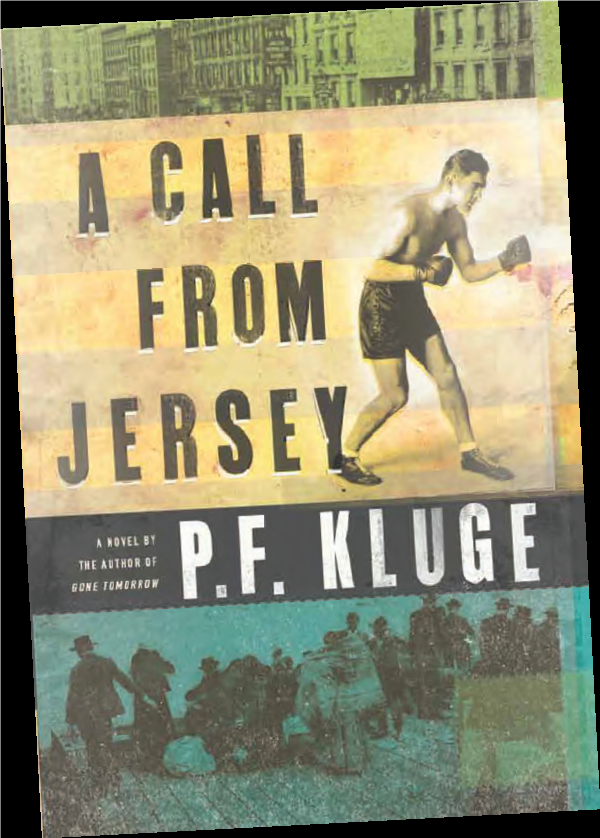
 While composing his son’s eulogy—a collection of heart-warming vignettes he planned to recount at Sean’s memorial service—TJ Nelligan realized that the young man who was unable to read or write had created a legacy of life lessons that he wanted to share. On the day of Sean’s funeral, Nelligan told a room packed with hundreds of friends and loved ones, “Live like Sean every day and you will make the lives of others so much better…and it will make you feel better, also.”
While composing his son’s eulogy—a collection of heart-warming vignettes he planned to recount at Sean’s memorial service—TJ Nelligan realized that the young man who was unable to read or write had created a legacy of life lessons that he wanted to share. On the day of Sean’s funeral, Nelligan told a room packed with hundreds of friends and loved ones, “Live like Sean every day and you will make the lives of others so much better…and it will make you feel better, also.”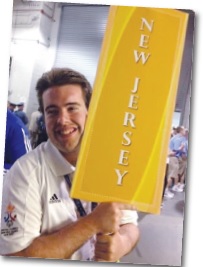 the foremost child neurologist in the world and we went to his office. He took Sean for about an hour and came back and basically told us that our son had intellectual disabilities, that he would never live a normal life…and probably never fit in with normal mainstream society…and that, as he got older, these disabilities would become more pronounced. It was like getting punched in the face, and like Mike Tyson used to say, everyone’s got a plan until they get punched in the face.”
the foremost child neurologist in the world and we went to his office. He took Sean for about an hour and came back and basically told us that our son had intellectual disabilities, that he would never live a normal life…and probably never fit in with normal mainstream society…and that, as he got older, these disabilities would become more pronounced. It was like getting punched in the face, and like Mike Tyson used to say, everyone’s got a plan until they get punched in the face.”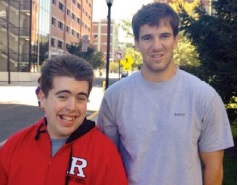 “One of the most important things Sean taught me—and this was difficult for a guy with a Type-A personality—was to have gratitude,” says Nelligan. “He couldn’t spell gratitude…but he lived it every single day.” Not surprisingly, Chapter One in Live Like Sean is entitled Be Grateful.
“One of the most important things Sean taught me—and this was difficult for a guy with a Type-A personality—was to have gratitude,” says Nelligan. “He couldn’t spell gratitude…but he lived it every single day.” Not surprisingly, Chapter One in Live Like Sean is entitled Be Grateful.
 Meg Daniels will continue solving crimes, Kelly expects. However, there are plans in the works for new characters. Devising the complex plots in her novels almost comes naturally to Kelly now, but it’s her characters that make each book special. “If I were only concerned with plot, I’d be publishing books a lot more quickly,” she says. “The characters always end up taking on a life of their own…and if I can’t ‘hear’ them in m
Meg Daniels will continue solving crimes, Kelly expects. However, there are plans in the works for new characters. Devising the complex plots in her novels almost comes naturally to Kelly now, but it’s her characters that make each book special. “If I were only concerned with plot, I’d be publishing books a lot more quickly,” she says. “The characters always end up taking on a life of their own…and if I can’t ‘hear’ them in m